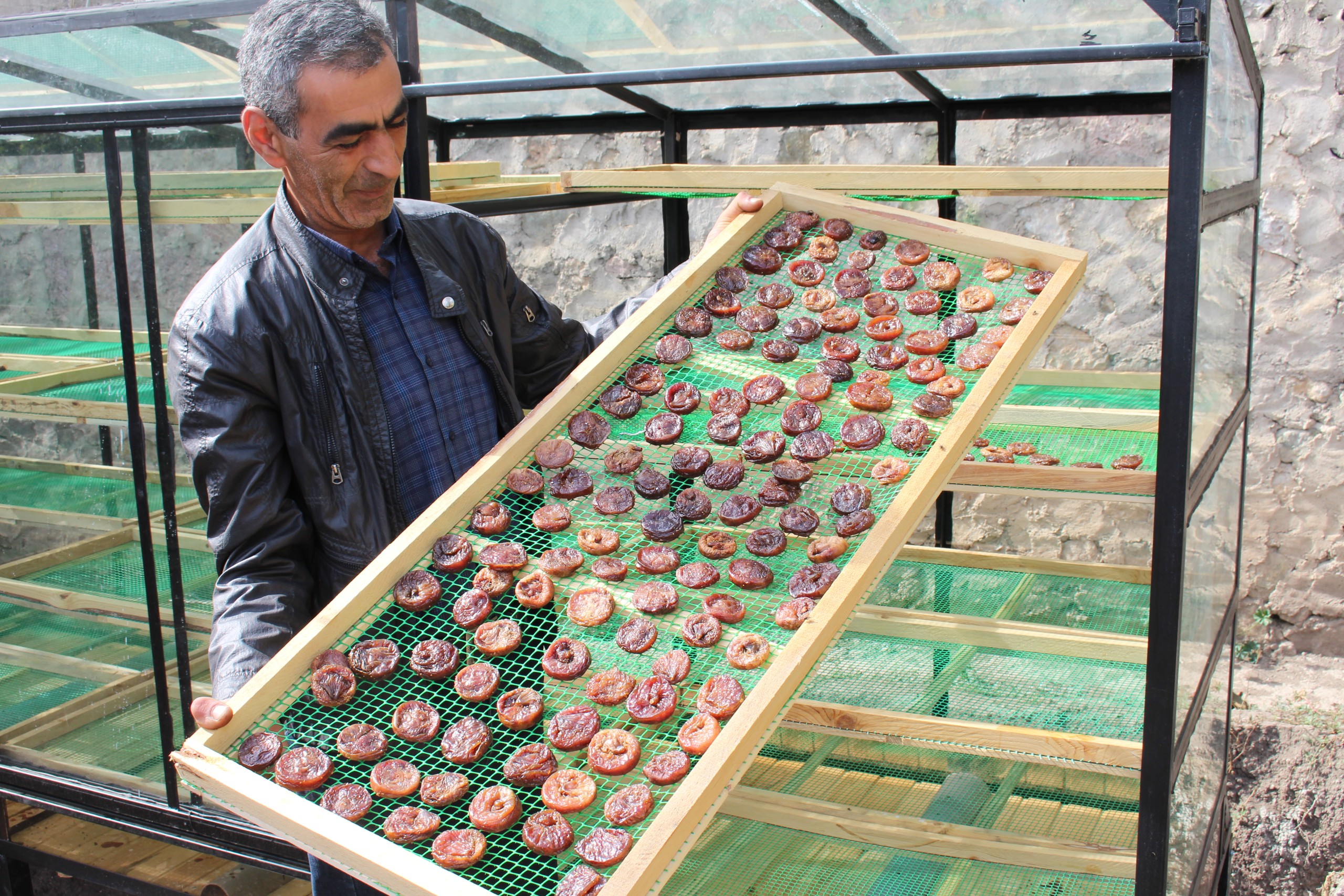[Newsletter] Adaptation Fund: Caps Accomplished Year with Eye to Promising 2023
The Adaptation Fund capped off another successful year, providing tangible results on the ground for climate-vulnerable countries and raising more than US$ 230 million in new pledges and contributions in 2022 at the United Nations COP27 climate change conference in Sharm El-Sheikh, Egypt, in November.
The fourth review of the Fund was concluded at COP27, in which Parties again recognized its crucial importance as an essential channel for supporting adaptation action and a pioneer of direct access to adaptation finance, while funding full costs of concrete adaptation projects in developing countries. The review cited the Fund’s comparative advantages in speed of project approval, strategic engagement of regional and local stakeholders, efficiency of institutional arrangements, enhancement of country ownership and climate finance readiness. While recognizing the Fund’s central role in the climate finance architecture, Parties also furthered development of a new clean market mechanism for adaptation.
As continuing signals of the broad trust earned by the Fund for its effective and nimble support on the ground for the most vulnerable countries and the momentum garnered for its 15th anniversary in operations celebrated at the conference, the new pledges included several first-time contributors and multi-year pledges. As the Fund continues to face record demand for adaptation actions with an active pipeline of about US$ 380 million (and growing) in projects that have not yet been funded, it will build on these pledges to enhance its financial sustainability.
 COP27 came fresh on the heels of key Board decisions in October that adopted the Fund’s new five-year strategy for 2023-2027 that will further build on its strategic pillars of Action, Innovation, and Learning and Sharing, with increased ambition and linkages, and additional cross-cutting areas of locally led adaptation and scaling up Fund actions to help meet the adaptation needs of vulnerable countries.
COP27 came fresh on the heels of key Board decisions in October that adopted the Fund’s new five-year strategy for 2023-2027 that will further build on its strategic pillars of Action, Innovation, and Learning and Sharing, with increased ambition and linkages, and additional cross-cutting areas of locally led adaptation and scaling up Fund actions to help meet the adaptation needs of vulnerable countries.
The Board also approved a new resource mobilization strategy and action plan that aims to further grow and diversify its funding sources to help address the need for more predictable funding. This will include targeting expanded contributions from national and subnational governments, and opportunities with foundations and the private sector.
The Fund hosted its first in-person large scale seminar following the peak years of the COVID-19 pandemic in September in Washington, D.C., when it welcomed representatives from its 34 direct access national implementing partners from around the world to share experiences, successes and lessons learned in furthering country ownership in adaptation and navigating the accreditation and project development processes, as well as several new funding windows that have been launched by the Fund over the last few years in areas such as innovation, learning, project scale-up, and enhanced direct access. The 5-day seminar included a site visit to a natural stream restoration project in the area.
Throughout the year, the Fund released several new knowledge publications on timely themes such as youth engagement in adaptation, intersectional approaches to gender mainstreaming, streamlined accreditation for smaller implementing entities, fostering efficiency and knowledge through regional projects, and strengthening country capacity via reaccreditations. Another study on scaling up effective projects was released along with an E-learning course on scale-up grants.
Often Adaptation Fund projects are the first concrete adaptation projects being carried out in many places. With now nearly US$ 1 billion committed to 140 projects on the ground building resilience of over 38 million beneficiaries, its focus on local ownership, institutional capacity building and knowledge sharing supports scaling up or replicating projects. The Fund’s Scale-Up Grants window is helping implementing partners such as in Rwanda develop expanded proposals based on their experience implementing successful Fund projects.
In April the Adaptation Fund Climate Innovation Accelerator (AFCIA), a US$ 20 million partnership launched a few years ago by the Fund with the United Nations Development Programme, UN Environment Programme, and Climate Technology Centre and Network, announced the awarding of the first round of US$ 2.2 million in grants funded by the Adaptation Fund and implemented by UNDP for a broad range of 22 local innovation projects across 19 countries. Among them are a resilience project in Oaxaca, Mexico reviving ancestral practices of fog catching to address water scarcity and Waru Waru to protect crops from freezing during frosts; and an adaptive agricultural solution in eastern India to scale float-farming and aquaculture in water-prone areas. Meanwhile in Burundi an AFCIA grant administered by UNEP is protecting 25,000 people from flooding through portable ‘slamdams’ while acting as a warehouse for water during droughts.
A new Evaluation Policy approved by the Board in March is aimed at enabling the Fund’s independent evaluation function to contribute more effectively to helping developing countries build resilience and adapt to climate change. The new policy goes into effect in October 2023, adding evaluation criteria linked to the Fund’s niche, as well as evaluation knowledge and expanded types of evaluations, among others.
Even as recent gap reports show rising concerns with climate risks and nearly 20% of the Fund’s portfolio is committed to disaster risk reduction and early warning systems, an exciting 2023 awaits as the Fund will begin implementing its new strategy to build on the many achievements of its last 5-year strategy while further optimizing the Fund’s value and impact to create positive change. It will strengthen synergies with other adaptation funders, enhance access to climate finance and build long-term adaptation capacities, while advancing gender equality and empowering the most vulnerable communities as agents of change.


